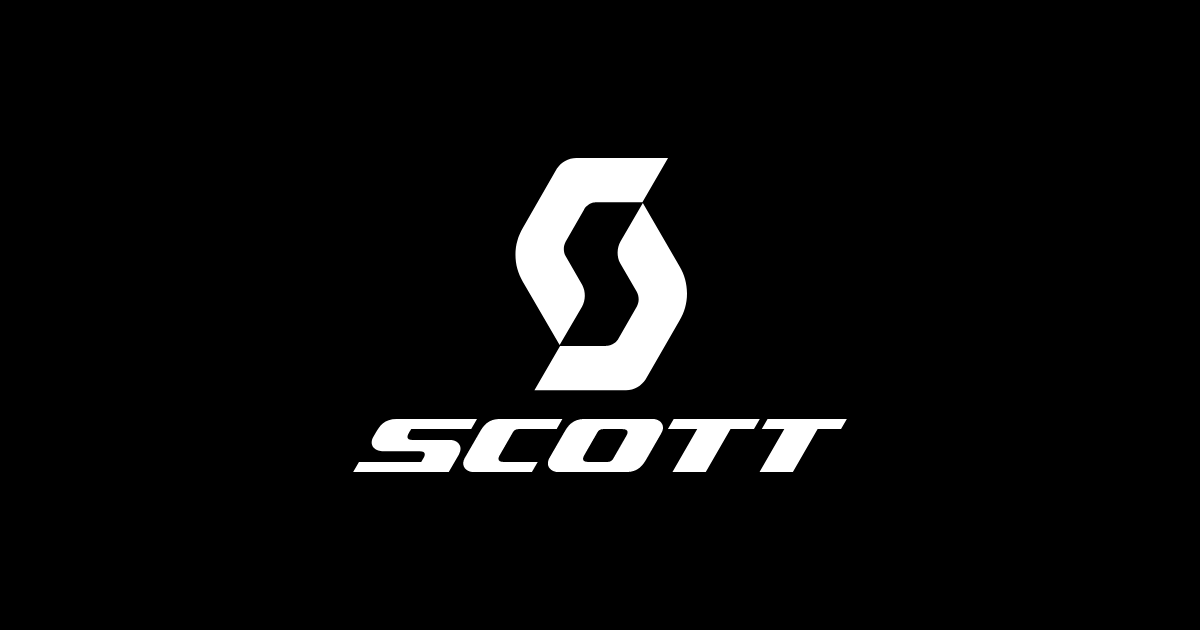Have you ever wondered how the biggest names in sports make their fortunes, and just how much of that money goes to the people who help them get those deals? It's a question many fans ask, particularly when it comes to someone like Scott Boras, a figure who stands very tall in the world of baseball. He's known for securing truly massive contracts for his player clients, so it's only natural to think about his own earnings, you know, what he takes home.
When you hear about a baseball player signing a contract worth hundreds of millions of dollars, there's always a team of people behind that agreement. At the center of many of these huge deals is an agent, and Scott Boras is arguably the most famous, or perhaps infamous, of them all. His work involves a lot of negotiation, and it often leads to record-breaking sums for his athletes, so it's a big deal.
So, how does a person like Scott Boras get paid for all this work? What's the typical structure for a sports agent's earnings, and what makes his situation possibly a bit different? We'll explore the fascinating details of the Scott Boras commission and how it all works in the high-stakes business of professional baseball, too it's almost a puzzle.
Table of Contents
- Who Is Scott Boras: The Man Behind the Megadeals
- The Role of a Sports Agent in Baseball
- How Sports Agents Earn Their Pay
- Scott Boras Commission: The Details
- Why Boras Commands His Fees
- Some of Boras's Big Deals
- The Business Side of Baseball Contracts
- Frequently Asked Questions About Scott Boras Commission
Who Is Scott Boras: The Man Behind the Megadeals
Scott Boras is a very well-known figure in professional baseball. He runs the Boras Corporation, which is a major sports agency. His name often comes up during the off-season, especially when big-name players are looking for new contracts, you know, because he's so involved.
He's known for being a very tough negotiator. Many people say he gets the absolute most money possible for his clients. This approach has made him both admired by players and, at times, a bit frustrating for team owners. He's truly a unique presence in the sport, in a way.
Personal Details and Bio Data of Scott Boras
| Full Name | Scott Dean Boras |
| Born | November 2, 1952 (age 71 as of late 2023) |
| Birthplace | Sacramento, California, USA |
| Nationality | American |
| Education | University of the Pacific (undergraduate and law school) |
| Profession | Sports Agent, Lawyer |
| Agency | Boras Corporation (Founder, Owner) |
| Notable Clients | Many top MLB players over the years |
The Role of a Sports Agent in Baseball
A sports agent does a lot more than just negotiate contracts. They act as a player's business manager and advisor. This means they handle many parts of a player's career, so it's a pretty big job.
Their duties typically include finding endorsement deals, helping with financial planning, and even offering career guidance. They are, in essence, a player's representative in almost every business aspect of their professional life. This can be a very demanding role, you know.
For baseball players, an agent is especially important because of the complex contract rules and the nature of the sport's free agency system. Having someone who truly understands these rules can make a huge difference in a player's earnings and career path, in some respects.
How Sports Agents Earn Their Pay
Most sports agents get paid through a commission system. This means they take a percentage of the contracts they negotiate for their clients. It's a very common way for agents to earn money across many different sports, apparently.
The exact percentage can change based on the sport and the agent. In baseball, the players' union, the Major League Baseball Players Association (MLBPA), has rules about how much an agent can charge. This helps to protect the players from very high fees, which is a good thing.
Agents usually only get paid when they successfully secure a contract for their client. If they don't get a deal done, they typically don't earn a commission on that specific negotiation. This model encourages agents to work hard for their clients, you know, to get those deals.
Scott Boras Commission: The Details
For baseball agents, including Scott Boras, the MLBPA sets a maximum commission rate. This rate is usually 5% of the player's playing salary. So, if a player signs a contract for $10 million, the agent's commission would be a maximum of $500,000, that is, if they take the full amount.
However, it's very common for agents to charge less than this maximum. Many agents charge between 3% and 5% of the contract value. The exact percentage can sometimes depend on the player's star power or the complexity of the deal, as a matter of fact.
Scott Boras, like other agents, earns his commission from the player's salary, not from the team. This is a very important point. The team pays the player, and then the player pays their agent from that money. This system helps to keep the agent's loyalty with the player, you know, where it belongs.
It's worth noting that this commission applies to the playing salary. Endorsement deals are often handled separately. Agents might charge a different, sometimes higher, percentage for securing endorsement contracts. This is another way agents can earn money, you know.
So, for a player signing a $200 million contract, Boras's commission could be up to $10 million from that playing salary alone. This shows how quickly an agent's earnings can add up when they represent many top-tier athletes. It's a pretty significant sum, apparently.
Why Boras Commands His Fees
Scott Boras is known for his deep knowledge of baseball's rules, market trends, and player values. He often uses very detailed data and analysis to argue for higher salaries for his clients. This approach is a big reason why players choose him, you know.
He has a reputation for being relentless in negotiations. He's not afraid to let a player go into free agency without a team if he believes a better deal will come along. This takes a lot of confidence and, quite frankly, a bit of a gamble, but it often pays off, so.
His agency also provides a wide range of services beyond just contract talks. They offer legal advice, marketing support, and even personal training guidance. This comprehensive approach adds value for the players and justifies the commission, more or less.
Players often see the commission paid to Boras as an investment. They believe that his ability to get them larger contracts means they still come out ahead, even after paying his fee. In a way, he helps them make more money than they might on their own, you know.
For example, if a player signs a $100 million deal with Boras, but might have only gotten $80 million without him, the player still gains a lot. The commission, in this view, is a cost of doing business that yields a much larger return. It's a very practical way to look at it, too.
Some of Boras's Big Deals
Scott Boras has been behind some of the largest contracts in baseball history. These deals really highlight the kind of money involved and, by extension, the potential for his commissions. These are truly landmark agreements, you know.
For instance, he negotiated Gerrit Cole's nine-year, $324 million deal with the New York Yankees. He also secured Stephen Strasburg's seven-year, $245 million contract with the Washington Nationals. These are just a couple of examples from recent years, as a matter of fact.
Other notable clients and their huge contracts include Bryce Harper's 13-year, $330 million deal with the Philadelphia Phillies, and Max Scherzer's three-year, $130 million contract with the New York Mets. These figures are truly staggering, you know.
Each of these deals, and many others like them, would generate a significant commission for the Boras Corporation, based on the standard MLBPA rules. It shows how his success for players directly translates into his agency's success, naturally.
The Business Side of Baseball Contracts
The world of baseball contracts is very complex. It involves not just the player's skill but also market demand, team budgets, and future projections. Agents like Boras truly understand these different factors, so.
They also consider things like deferred money, signing bonuses, and option years. All these parts of a contract can affect a player's total earnings and, therefore, the agent's commission. It's a very intricate dance, you know.
The competition among agents to sign top talent is also very fierce. Agents often try to show prospective clients how they can maximize their earnings and career stability. This competition helps to keep agents working hard for their players, more or less.
Understanding the Scott Boras commission means understanding a lot about the entire business of professional sports. It's about the value an agent brings to the table, and how that value is then compensated. It's a truly fascinating aspect of the game, apparently.
To learn more about on our site, you can check out our other articles. You might also find more details on this page .
Frequently Asked Questions About Scott Boras Commission
What is the typical percentage Scott Boras charges?
Scott Boras, like other certified baseball agents, is limited by the MLBPA to a maximum commission of 5% of a player's playing salary. While 5% is the cap, agents can and sometimes do charge less, often somewhere between 3% and 5%. It really depends on the specific agreement between the agent and the player, you know, what they work out.
Does Scott Boras get paid if his client doesn't sign a deal?
Generally, a sports agent's commission is based on successfully negotiating a contract. If a client doesn't sign a new deal, the agent typically does not receive a commission for that particular negotiation. However, agents often provide ongoing services, and their overall compensation might include other fees for things like marketing or financial planning, so there are other ways they can get paid, sometimes.
How does Scott Boras's commission compare to other sports agents?
The commission rates for agents vary across different sports. In baseball, the MLBPA sets the 5% cap, which applies to all certified agents, including Scott Boras. Other sports might have different maximums or more flexible arrangements. For example, basketball agents might charge up to 4%, while football agents have a cap of 3%. So, in some respects, it's pretty standard for baseball, you know.
For more information on how agents operate in baseball, you might want to look into the MLBPA's agent regulations. They provide a lot of detail about how commissions are handled and what agents can and cannot do. It's a really good resource, you know. You can find more details on the official MLBPA website.



Detail Author:
- Name : Miss Pinkie Hayes Jr.
- Username : christa48
- Email : lucas.hill@mosciski.biz
- Birthdate : 1975-01-25
- Address : 8697 Myrl Springs Suite 245 Myahside, MO 77836-8286
- Phone : +18474661540
- Company : Crooks, Dickinson and Hammes
- Job : Automotive Master Mechanic
- Bio : Expedita qui dicta vero iste aut aut. Ut quis iste cumque cupiditate consectetur facilis. Non et quas dolor cum autem.
Socials
instagram:
- url : https://instagram.com/heberlowe
- username : heberlowe
- bio : Qui cupiditate maiores aut. Dignissimos dolorum illum optio ea.
- followers : 3097
- following : 2786
linkedin:
- url : https://linkedin.com/in/heberlowe
- username : heberlowe
- bio : Deleniti qui libero aliquam accusantium.
- followers : 2790
- following : 2682